Types of Fifth Wheel Trailer Hitches
This post may contain affiliate links. See our privacy policy for details.
Understanding the different types of fifth wheel hitches
I’ve been crushing hard on some fifth wheel trailers lately, as we’ve been holed up in our tiny 14ft caravan, in the sweltering Australian heat, with a little portable air conditioner that can’t keep up once we’re out of the shade of the nearby tree… I’ve been coveting (jealously and overtly) the few fifth wheelers that have come through this park.
Fifth wheel RVs are not so common here in Australia. Sure, there are some but at a guess, I would say they make up only a very small percentage of the total RV market in Australia. Maybe 1-2% of all the RVs (motorhomes, caravans/travel trailers, campervans, camper trailers etc). And I think 2% is probably too generous.
But the camp at which we’re currently staying is a show grounds, so there’s no defined sites and we’re spread out all over the place. This makes it the perfect place for fifth wheelers to camp. Many of the caravan parks here are just too small to accommodate a fifth wheel, especially not ones the size of which I see for sale in the USA. I mean… 40ft! That‘s humungous!!
Even though ours are more in the 7-8m range (21-28ft) it’s still a type of RV that I’m really keen on.
Obviously, the biggest difference with a fifth wheel, is the hitch. And so in this post I’m going to explore the different types of 5th wheel hitches that you can get and the pros and cons of each.
Scratch that, I’ve just been doing my research and sheesh, that’s far too technical for me!
I’m going to give you an overview of the different types of fifth wheel hitches so that you at least have a vague idea of what they’re talking about.
This post contains affiliate links. Please see our disclosure for more information.
Gooseneck Hitch
In a nutshell, this is where the hitch on the fifth wheel fits over a ball (gooseneck ball) that sits in the bed of your truck.
This pic shows you quite well.
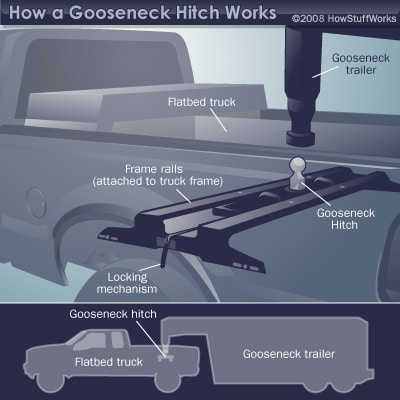
Although this next pic is low quality, it helped me to understand what gooseneck hitches look like.
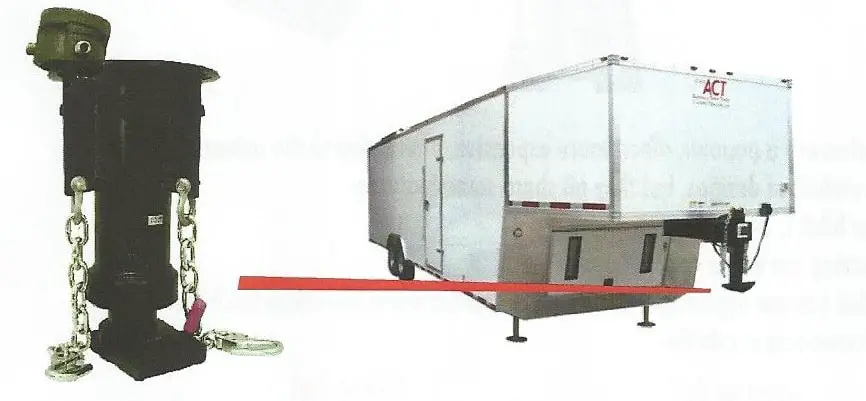
Fifth Wheel Hitch
A fifth wheel hitch has the pin on the trailer (it’s called the king pin) and it latches into the fifth wheel hitch that sits in the bed of the truck.
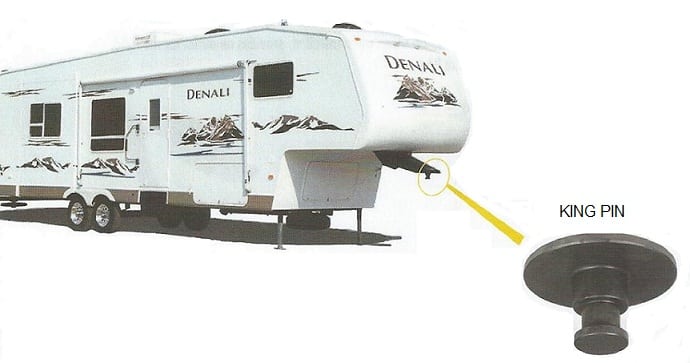
The arm that goes from the trailer to the king pin is called the king pin box and is used to extend or shorten the distance from the trailer to the king pin.
The king pin slides into the fifth wheel hitch, which is the part that sits in the bed of the truck. It has a sort of horseshoe shape that I’m sure you’re familiar with. Here’s a pic of one, just in case:
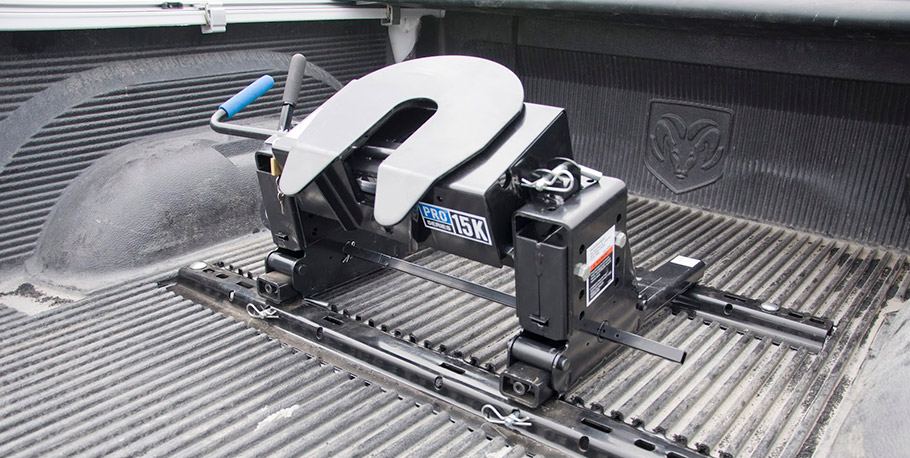
BTW – this is the type of hitch that heavy duty truck and trailers use, hauling goods all over the countryside.
As you can imagine, these fifth wheel hitches come in a MULTITUDE of different formats with different things that they can do.
They say, that a fifth wheel hitch is only really appropriate for long bed trucks, where the bed of the truck is 8ft or longer. This is because the king pin (and therefore the hitch) needs to sit between the cab and the rear axle. On short bed trucks, the hitch will be too close to the cab and the front of the trailer is gonna collide with your cab when you turn tight corners. Picture below as a bit of explanation:
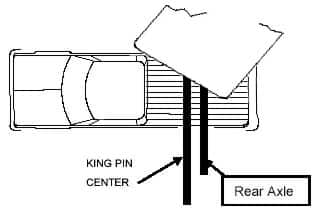
Best fifth wheel hitch
There are a number of fifth wheel hitch manufacturers with lots of models. Finding the right hitch for your set up will be dependant on the size and weight of your fifth wheel camper and the specifications of your tow vehicle.
Tulga fifth wheel hitch
Reece fifth wheel hitch
Curt fifth wheel hitch
B&W Companion 5th wheel hitch
Slider hitch
Now, if you already have a short bed truck you can still use a fifth wheel hitch, but you will need to use a slider hitch.
This is a hitch that slides further back (towards the tailgate) in the bed of the truck only when you’re doing tight turns at low speed, such as pulling into or out of your camp site. This allows you to do tighter turns (smaller turning radius) because the trailer is moved further away from the cab and it won’t hit.
Hopefully explained with this pic:
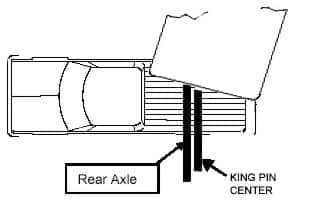
You’ll see that the king pin ends up past the rear axle, but it’s fine because it’s only for a little while as you are completing the turn.
They come in either manual (where you have to get out of the truck and unlock the hitch before making your turn) or auto.
Adapters
You are able to get adapters that turn a gooseneck to a fifth wheel (and vice versa), but that’s getting a bit more specialized, and every situation is unique.
An adapter can change where the stressors are applied to the rig so it’s much more than just a simple ‘plug and play’ scenario.
If you’re going to do something like that, I think you’ll need to talk to a towing / truck / RV / fifth wheel specialist. i.e. not me.
The adapters can go either on the trailer part:
Gooseneck to fifth wheel
Fifth wheel to gooseneck
Or on the truck bed part:
And here endeth the brief overview of fifth wheel trailer hitches. I hope it’s given you a little bit of clarity about what they are and how they work to couple a 5th wheel trailer and pickup trucks together.
Next, I’ll be looking at some different fifth wheelers that have taken my fancy. That’s the fun bit!
I love RVing! I share about our journey around Australia, how we came to do this trip, all the planning involved, and snapshots of what life on the road is like.















Although the traditional 5th wheel hitch is much more stable than the travel trailer’s ball hitch, Hensley has come up with an air bag system for a 5th wheel hitch that is out of this world spectacular. It has changed out towing habits and we no longer have sprained necks coming into camp after a long day of hauling. They also do make a hitch for the travel trailers that is something to consider.
Oh wow, thanks for that Susan. I’ll have to look it up!